Politics
CISLAC expresses concern about vote buying in Osun 2022
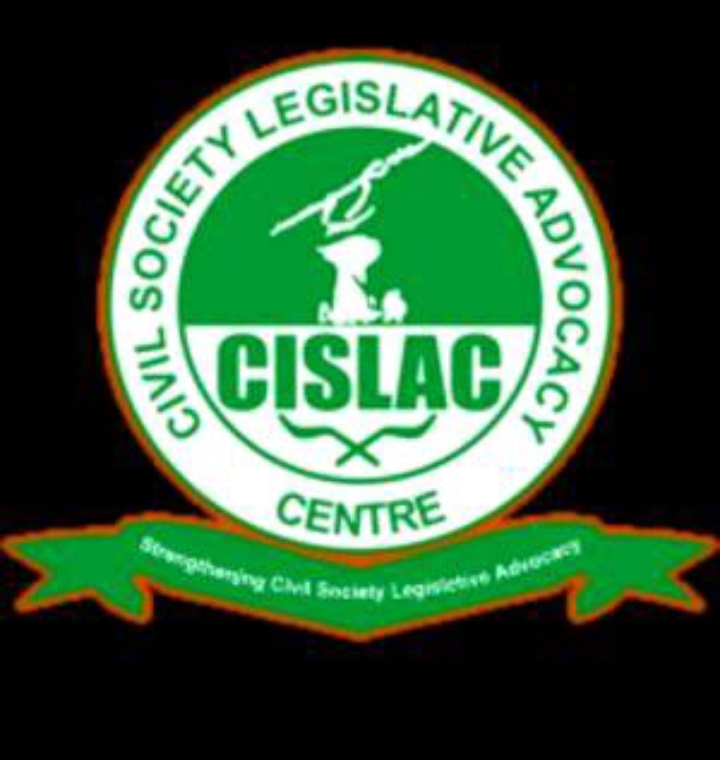
By Adeleye Kunle
The Civil Society Legislative Advocacy Center, CISLAC, expressed concern on Wednesday about the use of vote buying to compromise electorates ahead of the Osun governorship election on July 16, 2023.
In an interview with Track News, Auwal Musa Rafsanjani, Executive Director of CISLAC, described it as a new normal introduced to corrode the electoral process by unscrupulous politicians who do not care about Nigerians.
Rafsanjani defined the new threat to the electoral system as voter distrust.
“While voting is a formal citizen decision-making process through which a population chooses a credible individual to hold public office,” he said, “it is disturbing that citizens’ choices and decisions were largely influenced and determined by high incidences of vote-buying facilitated by politicians, hoodlums, and party agents.”
“Vote buying is a symptom of a larger problem of poor electoral integrity.” It is concerning that financial enticement has previously dominated Nigerian politics.
“Vote-buying influences voters’ decisions to make appropriate or well-informed electoral decisions, which without a doubt determines the integrity and quality of an election’s outcome.”
“The outcome shapes the performance of the nation’s socioeconomic institutions and, to a large extent, the citizenry’s standard of living and well-being.”
According to him, Nigerian political campaigns have historically exacerbated the corruption and mismanagement that pervade the public sector, with political candidates diverting public treasuries to fund campaign activities.
“It has become a case of the ‘highest bidder’ winning.”
“Voting buying raises the cost of elections unnecessarily for parties and candidates, and may eventually prevent credible candidates from running for political office.”
“This fosters distrust among voters, who feel disenfranchised by a corrupted system that fails to uphold democratic ideals.” It is an unethical practice in terms of democracy’s fundamental values and teachings, as well as global standards,” he stated.
To discourage the growing money politics, vote buying, unchecked campaign funding, and overbearing party finance, the CISLAC president advised, “Before and after the elections, all relevant stakeholders must demand fully implemented sanctions against illegal funding and financial transgressions, including imprisonment or de-registration of erring candidate or political party to discourage the growing money politics, vote buying, and unchecked campaign funding, and overbearing party finance.”
He also urged the Economic and Financial Crimes Commission, or EFCC, and other anti-graft agencies to go after the perpetrators of the heinous crime.
“The Economic and Financial Crimes Commission, EFCC, and other anti-graft agencies must strengthen and extend their mandates to prosecute cases of vote-buying, vote-trading, and money politics in order to protect the nation’s electoral integrity.”
“This includes an independent judicial system that treats vote buying as a financial crime and imposes appropriate sanctions.”
“Electorates have fundamental mandates to demand complete transparency in political campaign funding and expenditure.”
“Voter education and wider civil education must be conducted over time in order to broaden voters’ horizons on how vote-trading is related to things that happen in their lives or may happen in the future.”
“This includes targeted community sensitization on the negative consequences of vote-buying as well as the negative effects of vote-trading on public/community services,” he said.
He also stated that “for electoral integrity, a secret balloting system must be fully institutionalised and practically demonstrated.”
“Civil society organizations, the media, and all well-meaning stakeholders must discourage vote-buying by encouraging citizens to demand strict adherence to the Electoral Act’s provisions on electoral financing.”
-

 News2 days ago
News2 days agoFamily, Friends Celebrate Jailed Former Deputy Senate President, Ike Ekweremadu’s Birthday
-
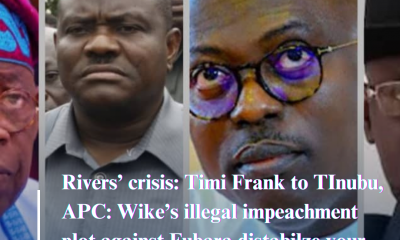
 Politics6 days ago
Politics6 days agoRivers’ crisis: Timi Frank to TInubu, APC: Wike’s illegal impeachment plot against Fubara distabilze your administration
-

 Niger Delta5 days ago
Niger Delta5 days agoNiger Delta Stakeholders Accuse Olu of Warri and PINL Management of Dishonesty Over Terminated Pipeline Contract
-
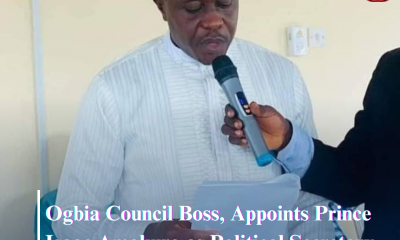
 Politics6 days ago
Politics6 days agoOgbia Council Boss, Appoints Prince Isaac Amakuro as Political Secretary
-
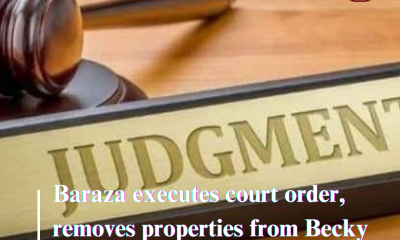
 News6 days ago
News6 days agoBaraza executes court order, removes properties from Becky father’s residence
-

 Business3 days ago
Business3 days agoBaraza: Bribena pleads for understanding, highlights solutions to organization’s problems
-

 Business5 days ago
Business5 days agoWema Bank Unveils CoopHub, Nigeria’s First Digital Platform for Cooperative Societies
-
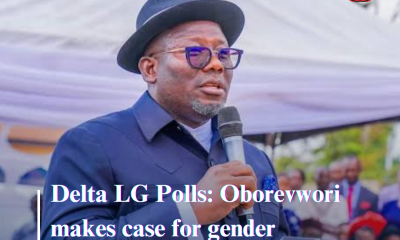
 Politics6 days ago
Politics6 days agoDelta LG Polls: Oborevwori makes case for gender inclusiveness




